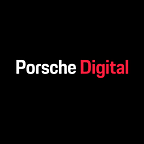Why Remote Work Gives Us More Freedom in Software Engineering
The end of the COVID-19 pandemic is not yet in sight. Still, we think it is a good moment to reflect on what will remain of the new work processes, how our work has changed in 2020 — and how looking at structures from a distance creates new perspectives.
For many months now, it has been quiet in most of our offices around the globe — from Ludwigsburg to Tel Aviv and Silicon Valley, just to name a few. Where once the walls were covered with notes, sketches, and ideas, there is now a safe distance and contact restrictions. My colleague Jens has already written about the tricks and tools we used to organize our global company meeting at the end of March from a distance here; my colleague Laura wrote about how we organized the switch to remote work. The conclusion: The infrastructure and tools were already in place, we only had to adapt the processes and routines.
What will remain of our new experiences?
The pandemic year 2020 is coming to an end and the first indications from vaccine research give a glimpse of hope. With about ten months of remote experience, it is time to take stock — from a software development perspective.
From my point of view, we, as the Software Engineering & Deep Tech team, have gained more freedom in software development due to the distance. We are more agile in terms of team composition across location boundaries, time zones, and attendance. We are also more flexible in our collaboration because we no longer depend so much on synchronicity.
Team setups are less determined by location but even more by skills and diversity
But let us start with one of the few things that have not changed in 2020: Our role as the Software Engineering & Deep Tech team within Porsche Digital. We support the product teams with developers and ensure technically high-quality product development by, among other things, ensuring that the development processes, standards, and quality of software development are maintained across all locations. Each cross-functional product team, therefore, has one or more developers.
What we have learned in the last months: Full remote work can make collaboration easier. If no one’s in the office, it makes no difference where the team members are located — everyone is informed equally and in constant exchange. To give one example: There’s a project team with three developers located in Berlin and one in Ludwigsburg. If the Berliners are working together on-site in the office and the colleague from Ludwigsburg only joins meetings via video from time to time, he will probably be less informed and up to date regarding the project. Also, there’s a high probability that he won’t feel as much connected to the team. But when all team members work remotely, there’s no imbalance. Of course, working in different time zones — like with our colleagues in the US or Shanghai — makes collaboration more difficult. Still, smart tools and great communication in agile teams enable us to master this. The team setup is determined less by location and more by individual skills and diversity.
Full-remote also makes it easier for us to recruit even more broadly and to include freelancers from various locations in our projects — the knowledge barriers are easier to overcome if everyone works from a distance. We also succeeded in integrating our new locations in Zagreb and Barcelona in 2020.
Asynchronous working methods are gaining in importance
What was already important for our global work process has become even more important through remote work: The ability to make collaboration independent of time. To this end, we have further expanded our work model and common standards with regard to the documentation of tasks. This enables us to work together smoothly, even if it is not always possible to exchange information with team colleagues. We have succeeded in ensuring that the restriction of face-to-face meetings has led to more individual freedom of working time — without compromising the transfer of knowledge.
This year has sharpened our focus on what actually makes our cooperation work — it is about meeting the individual requirements of the teams, employees, and projects in order to make the cooperation meaningful.
Sven Lutz is Tech Lead New Business Portfolio at Porsche Digital.
About this publication: Where innovation meets tradition. There’s more to Porsche than sports cars — we’re tackling new challenges, develop digital products and think digital with a focus on the customer. On our Medium blog, we tell these stories. It’s about our #nextvisions, smart technologies and the people that drive our digital journey. Please follow us on Twitter (Porsche Digital, Next Visions), Instagram (Porsche Digital, Next Visions, Porsche Newsroom) and LinkedIn (Porsche AG, Porsche Digital) for more.
